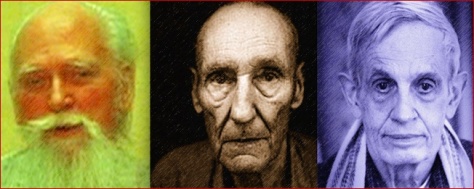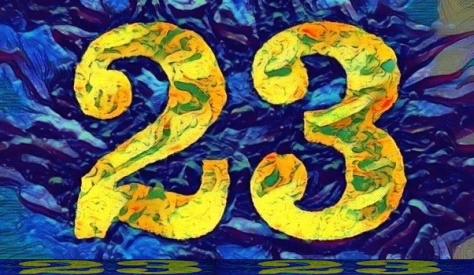When 2 + 3 Is Not 5,
Some Call it an Enigma
Numbers and the Internet. Man-made to gauge and track the world, they’re both endless and will go on long after we’re gone. As matter can always be reduced to its numeric essence, so all manner of human expression may one day reside in the digital realm.
Take 23, for instance, the number assigned by fate to my first breath. Like with other numerals, there are hundreds of Websites about it, from math and numerology to cults and strange coincidences, with everything in between, besides, of course, celebrity birthdays.
Age-wise, few are like 23, and most of anyone would consider it among life’s best years. Perhaps. We hardly appreciate it then or even notice it. But as it recedes, it locks in the imprint of an age when choices are wide open, if not nearly wise, and self-fulfillment is mandatory.
A mind-boggling assortment of arcana is related to 23 as a prime number, but even as its complexities keep planets spinning, and the ISS aloft, few are wise to them. We all have 23 pairs of chromosomes, though, even if they no longer dictate one’s gender.
A curious statistical theory, the Birthday Paradox, says that within a group of 23 people, chances are, two share the same day of birth. That’s the least amount of people to whom such a likelihood is higher than 50 percent. But please, don’t go asking strangers for their DOB.

THE CHAOS & MYSTERY OF NOT MUCH
Yes, there are at least two weird groups that attribute 23 a special meaning. Discordianism associates it with chaos, with some mumbo-jumbo about inverting the pyramids (you read it right), and the goddess Eris. By the way, the Great Pyramid of Giza was built with 2.300 stones, so there you have it.
As for 23rdians, they see the number as an enigma permeating all spheres of existence, claiming author Robert Anton Wilson as a spiritual mentor of sorts. Wilson, in turn, may have caught the 23 fever from William Burroughs, who once told him about his own obsession with it. And let’s not even start with the bible.
Add to these, well, peculiar people, such Nobel Prize winner John Forbes Nash. Despite his work on economics, he is almost better known for having a strange, and tragic, fixation on the number (and Pope John XXIII, but if you have to ask, don’t). And of course, (more)
_______
Read Also:
* On This Day
* You Say It’s Your Birthday






